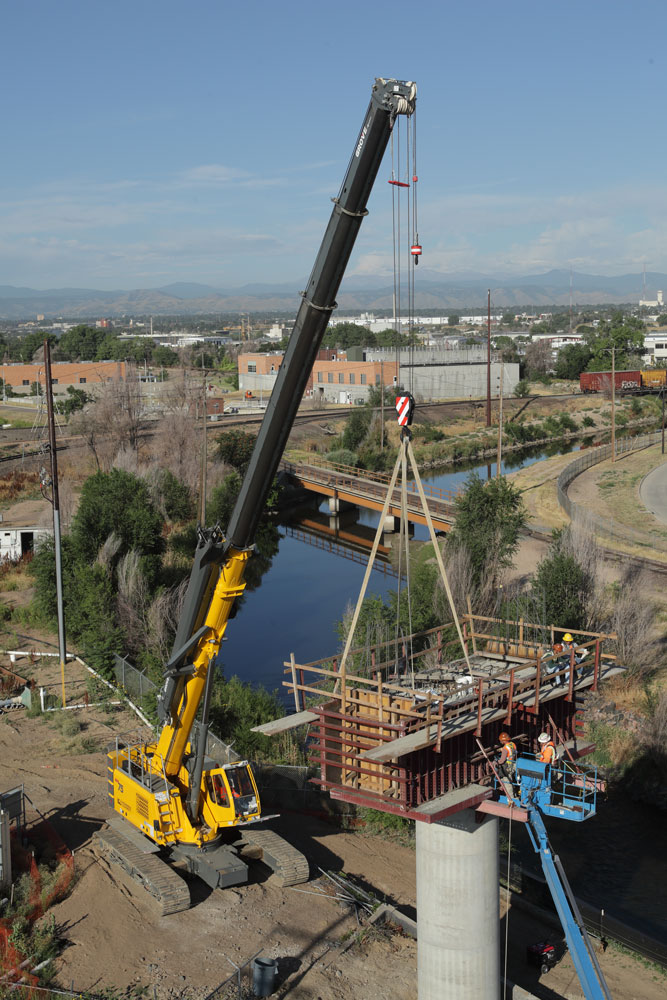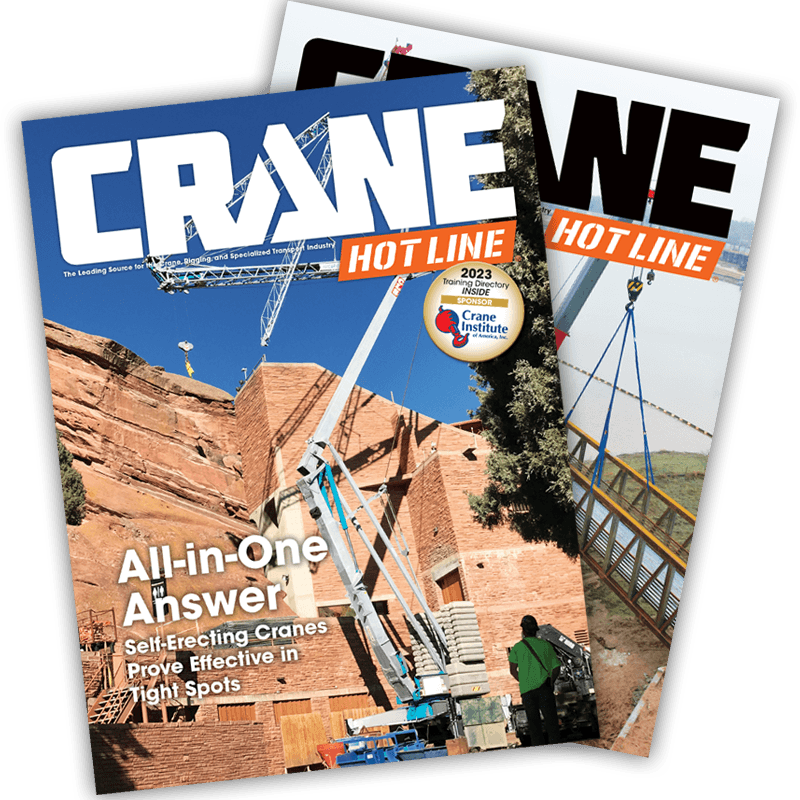Grove GHC75 Telecrawler Helps Build Elevated Bridge in Denver
 |
| Enlarge Image Grove GHC75 on Skyway Bridge |
January 11, 2017 - In Denver, Colorado, the North Metro Rail Line is an 18.5-mile electric commuter rail system that will connect Denver’s Union Station with many of the city’s northern suburbs. Ten miles of the track have been completed so far, along with six of the train line’s eight stations.
The Skyway Bridge, an elevated light rail bridge that will measure 1.8 miles in length, is a major part of the project and the longest of its kind in Colorado. Though construction of the Skyway Bridge will extend into 2017, one of the most difficult phases of the project has already been completed: a stretch of bridge that runs in between the properties of an oil refinery and a large wastewater treatment plant, which provided little space for a crane to maneuver.
Ralph L. Wadsworth Construction Company (RLW) is the contractor tasked with building the Skyway Bridge. The company rented a Grove GHC75 for the project, as the telescoping crawler crane was one of few machines that could navigate the jobsite’s tough conditions.
Lee Adams, construction manager for RLW, said that the maneuverability of the GHC75, along with its compact footprint, was crucial in completing construction. Adjacent (pre-existing) railroad tracks and a water-filled canal constrained space at one point on the job site, and on another, a retaining wall and fence flanked the skyway’s path.
“There was a very narrow alleyway to work with in between the two properties—it was a tight space that offered little more than the width of the train tracks themselves,” he explained. “There wouldn’t have been room for a standard, outrigger-equipped hydraulic crane. The GHC75 gave us the capacity we needed in a frame that was small and agile enough to traverse the narrow job site.”
The 118'1" telescoping boom of the GHC75—which enables it to pick-and-carry at 100 percent of its load chart and to swing loads a full 360 degrees—also came in handy on the project. Combined with the crane’s ability to travel over rough terrain with its crawler tracks, the 75 USt GHC75 was able to complete some very challenging pick-and-carry lifts.
“First we had to drive the crane over a railroad crossing and down beneath power lines to get it in position for the lifts,” Adams said. “Then we needed to pick up a load, boom down and navigate beneath the power lines without a hitch to place the load. This really was the perfect crane for this situation.”
The GHC75 lifted 9 tons of concrete gang forms to a height of 40 ft,, which enabled workers to bolt the forms together in an interlocking formation to construct the elevated bridge. The crane also hoisted 16-ton rebar cages to heights of 72 ft. and released concrete on top of pier caps using a bucket system.
The maneuverability of the GHC75 was not lost on Zach Beckwith, the foreman and crane operator on the job site, who praised the crane’s versatility and ease of use.
“This crane was perfect for the job since we didn’t have to worry about the outriggers you find on a traditional hydraulic crane,” he said. “If you have to move a regular hydraulic crane, you have to suck the boom in, break down the outriggers, move the pads and start all over with the next lift. The GHC75’s heavy duty crawler treads enabled us to simply move into place and get to work, saving almost 20 minutes per lift.”
RLW rented the GHC75 from Denver-based Honnen Equipment. “Without the GHC75, we might have had to rent a much larger one from Honnen—something like a 500-ton USt crawler,” Adams said. “That would have put us on the other side of the canal due to the space. It would have been much more expensive and much more difficult to quickly complete these precision lifts. The savings of time and money are considerable when you think about the alternative.”
Overall construction of the North Metro Rail Line began in October 2015, and is on track for completion in fall 2017. The $350 million project will run from Denver’s Union Station through Commerce City, Thornton and Northglenn to Highway 7 in North Adams County, utilizing eight stops along the route.

